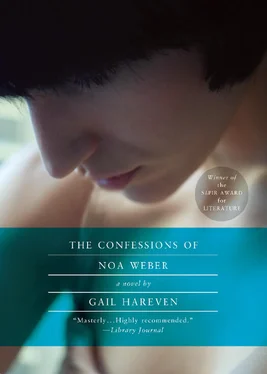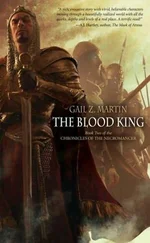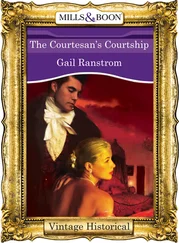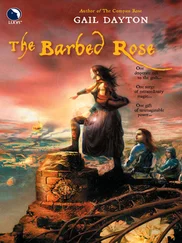If I had given Nira Woolf a child, I wouldn’t have let her have it by a man she loved. A sperm donation might have fit the bill, except for the repelling nature of the procedure, and if she had wanted a child she would have been more likely to choose a man for a one-night stand according to the probable quality of his genes. What would have suited her best, I think now, would have been a virgin birth, and I would have given her one without any qualms: the possibility of replicating herself by herself without the assistance of a man. Except that a miraculous event of that nature belongs to a different genre than the one I write in. And even though my thrillers are far from being realistic, they are not amenable to this kind of supernatural event.
A newborn baby is a wonder, and children should be rejoiced in for themselves from the moment they are born. They should be loved simply for what they are, and not thanks to another love. And I did not love Hagar in this way. With time I did begin to love her, of course; the heavy-headed, well-tempered infant, the logical child suddenly fired up over questions of justice and injustice, the young girl sprawling on the floor to paint bad slogans for demonstrations and asking me to put her hair up in a ponytail because her hands were full of paint. I loved her as she deserved to be loved, but from the outset the feeling was tainted.
Don’t get me wrong, if I had been faced with the kind of dilemma people like to pose in youth movements — you and Hagar and Alek are cast away in the desert with only one water canteen; or, if you could only rescue one person from a fire — I have no doubt what my answer would be, and it would be sincere. I wouldn’t hesitate for a second, and that is not the point. The point is the despicable way I sometimes looked at her, and still sometimes look at her, through Alek’s imagined eyes. Like the way, for instance, when she was six months old and her face was covered with a red rash, I was afraid of his reaction, as if he might be repelled by her appearance, and this repulsion might somehow be projected onto me. And the way when she was five years old, and he would sometimes take her for walk, I would wash her little jeans and dry them on the stove so that she would look cute for him. The way I inspected my teenaged daughter with a cold eye before she flew to Paris. And the way I tried to guess from her stories upon her return if he was charmed, and to what extent, and by what precisely, so that I could learn the secret. I knew very well how loathsome these thoughts were, and nevertheless before she set off to visit her father and grandmother in Paris, like a pimp I bought her a bottle of his favorite White Shoulders perfume, in the hope that in some unconscious way she might remind him of me. If only she would have hated it, but she didn’t hate it, my daughter was delighted with her mother’s gift, without having a clue about what I was up to, because the overt message I gave her was the opposite of my true wishes: “You’re allowed to decide that you don’t like him”; “You shouldn’t have any great expectations of him or his mother. Think of it simply as a trip to Paris without any strings attached”; “I’m sure they’ll welcome you with open arms, and you don’t have to make an impression on anyone there,” and so on and so forth until Hagar said: “Stop it, Mommy, relax, I’m not five years old, and this time I have no intention of letting him upset me. My main feeling is one of curiosity … to meet my roots.”
Luckily for us Hagar does not resemble me or Alek, and if she resembles anyone, it’s my father: in her clear, unshadowed, round-eyed regard, the way she purses her mouth, and the stubborn cleft in her chin. Whether she bears any resemblance to Alek’s parents I have no idea.
ALEK DIDN’T COME
At the visiting hour on the first day Alek didn’t come, and I put off my expectations to the second day. Perhaps he was sitting for an exam at the university, perhaps he had promised to work with Yoash and he couldn’t get out of it, perhaps he had fallen asleep after a sleepless night and when he arrived at the hospital they wouldn’t let him in. For some reason I didn’t think of Tamara, perhaps because the events of the night had made her pale into insignificance in his eyes, or so I believed, and therefore also in mine.
Without any logical reason I fell asleep in a kind of daze of happiness, and in the certain knowledge that he would come tomorrow. At the beginning of August he was supposed to present himself in Heidelberg, I did not imagine for a moment that he would cancel his trip, but the weeks before us, like the parting itself, were indelibly stamped by the covenant of the night of the birth.
The next day legions of visitors passed through the room, bearing flowers, bags, magazines and plastic bottles. My bed was the middle one of three, and even when I drew the curtain around it, I couldn’t shut out the voices coming from all directions. Improvised vases overturned and spilled water on the floor, the two chairs in the room were dragged to and fro. “Excuse me, is this so-and-so’s room? … Mazal tov … what time was the birth? … Mazal tov … it’s so cute.… How are you feeling? … Is this so-and-so’s room? … You’re still a little pale.… How much does she weigh? What can we bring you? Should we call the nurse?” Twice a man opened the curtain and immediately apologized, and once a toddler snuck in and hid and was immediately removed with a gentle rebuke.
My solitariness did not bother me, not at this stage. It set me apart, it enabled me to concentrate on the one person whose presence I desired, and all the comers and goers seemed to me like extras in a movie, an accompaniment to the main plot that was mine. Only mine. To my right and my left lay women who had just given birth just like me, women who had lives just like me, perhaps more interesting than mine, but I was barely aware of their existence. And when the babies were brought in for us to feed, I did not respond to any conversational feelers. A kind of game developed between me and the nurses: they opened the curtains around my bed and I closed them, they opened them again, and I closed them again, hiding behind them and putting on a Madonna face, as if the stitches didn’t sting like hell whenever I went to pee.
Five visiting hours went by in a waiting that was like a concentrated doing, until my strength ran out. I yearned for him to come so intensely, I imagined him so vividly, that I felt as if the yearning itself would bring him to me. Like a beamed message, a call that could not be ignored. Because he had to hear it.
Waiting, like concealed internal bleeding, gradually brings about a kind of anemia, a completely tangible loss of strength. And in the hospital I felt for the first time how this concentration — here he comes, in a minute he’ll come, in a minute he’ll be standing in the door — slides me slowly into a tearful impotence. I should have hated the person who made me feel like this, not because he was to blame, but simply because of the feeling itself and because of survival instinct. But my survival instinct didn’t work, not in the hospital and not later on. And the secret expectation became a part of my being. Like a chronic pain that awakens with changes in the weather. I have no idea what failing causes it, but for the most part I think that this failing is not in me and my mind, but in the nature of love.
I remember a picture from my last visit to Moscow, it was in February of this year and we were standing in the street next to the Patriarch’s Ponds waiting for a friend of Alek’s to pick us up for a late lunch. When we left the house in the morning the temperature was minus ten, and towards midday it dropped even further. The sky turned gray, low and damp, and from the moment that we stood still the snow lost its glamour, and I felt very cold, especially my feet. Twice Alek went to the little booth next to the ice rink and bought me a ghastly cup of hot coffee, but even with the styrofoam cup in my hand I couldn’t stop moving back and forth. “If you’re already moving, then lift your leg like this,” he said and demonstrated a few high swings of the thigh, “it will warm you more.” But Alek himself did not shake a limb. For an hour and a half we waited there, his friend was caught in a traffic jam, and for most of the time he stood there without a hat, in infinite patience, his shoulders slightly stooped, as if he had been trained all his life to wait. At some point a little old lady in a black flowered headkerchief stopped next to us. She raised a wrinkled fairytale face to us, with bright blue, benevolent fairytale eyes, and rattled off a couple of sentences that brought an affectionate smile to Alek’s face. “She says it’s obvious you’re not used to the weather,” he said when she walked away, “she says I must take you home and give you black bread and drippings. Black bread. She says it must be a black and not white.” “I’d eat anything now, never mind what, I’m dying of hunger.” “Dima will come soon, and then we’ll eat properly. Unless Anushka spilled the oil, of course.…”
Читать дальше












